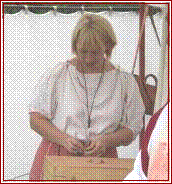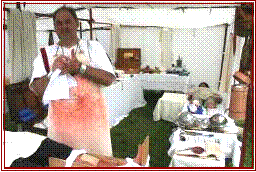
|
To contact us: |

|
Medicine |
|
The early attempts of Roman medicine relied heavily upon their agricultural heritage. The head of the household, presumably because of his supposed age and wisdom, dispensed many of the home grown remedies and cures to his family. Wonderful 'cure alls' such as sheeps wool (soaked in all manner of substances) and cabbage were driven as the great medicines of the early republic. Mostly due to the agricultural heritage of Rome many of the cures given to livestock were frequently given to humans who displayed similar symptoms. |

|
Surgeon or midwife—Roman medicine was far advanced from that before or after |


|
By far the most well known doctor of Rome was Galen, a physician who learnt his trade in the gladiator schools, the military and eventually in the Emperors household. He is frequently known as the 'father of medicine' and theorised on a great deal of, then, ground breaking ideas such as circulation. this lead to the glory days of Roman medicine. Although still very simple compared to much of our modern understanding, as much as could be learnt via observational study was. Surgical tools and some practices are exactly the same today as they were then. In our civilian medical display you will find a great many of the tools and ideas of the Roman doctor an surgeon. |